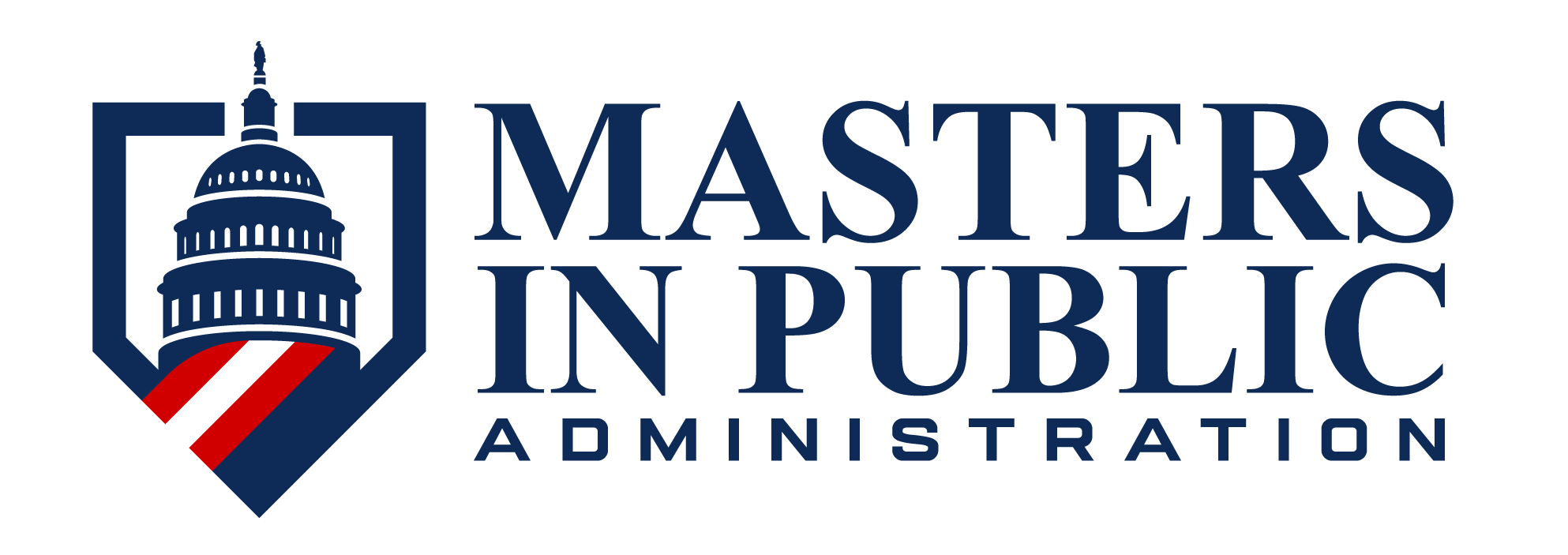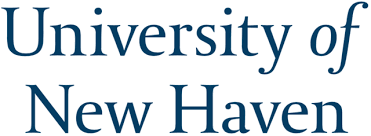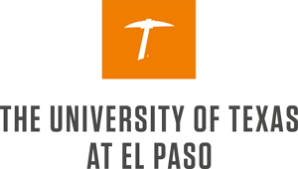Introduction
When considering your career advancement, pursuing an advanced degree can significantly broaden your opportunities. A master’s degree in administration, in particular, can give you a distinct advantage in the job market, especially when aiming for higher-level management roles. Among the various degree options available, two popular choices are the Master of Business Administration (MBA) and the Master of Public Administration (MPA). While these degrees share some similarities, their primary distinction lies in their focus on either the private or public sector.
ADVERTISEMENT
American University
Online Master’s in Public Administration and Policy
American University’s nationally recognized and NASPAA-accredited master’s in public administration provides students with a master’s-level understanding of modern governance from an award-winning faculty working and teaching in the heart of government, Washington, D.C.
Ohio University
Online & Hybrid Master of Public Administration Degrees
Ohio University’s MPA programs equip graduates for leadership roles in government, nonprofit organizations, and the public sector. Concentrations include:
Walden University
Online Public Policy and Administration Programs
Walden University’s Public Administration programs are taught by a distinguished faculty of scholar-practitioners, many of whom have senior-executive experience in government and public service. Programs include:
Arizona State University
Online Master of Public Administration (MPA)
ASU’s Online Master of Public Administration provides students with a curriculum that covers leadership strategies, ethical decision-making, and effective management across various organizations.
Liberty University
Online Master of Public Administration (MPA)
Liberty University’s Master’s Degree in Public Administration Online is designed to equip students with a thorough background in the theories and practices essential for success in government and nonprofit roles. MPA areas of focus include:
Southern New Hampshire University
Online Public Administration & Political Science Degrees
Stand up and be counted with a degree in public administration/political science from Southern New Hampshire University—and learn how to facilitate change from within the system. Program offerings include:
MPA vs. MBA: Degree Comparison
The Master of Public Administration (MPA) is a graduate degree focusing on public and nonprofit sectors, preparing individuals for leadership positions in governments, nonprofits, NGOs, and other service-oriented organizations. The MPA also has applications in the private sector, such as in organizational leadership and human resources management.
An MBA, or Master of Business Administration, is the leading program for professionals seeking a comprehensive understanding of key business areas like strategy, management, finance, and marketing. While many MBA graduates pursue careers in consulting, finance, and technology, these skills are also valuable in charitable, government, or social impact organizations.
MPA and MBA degrees share several similarities despite their distinct focuses. Both programs equip students with valuable management and leadership skills that are applicable in various professional settings. Students in both programs learn about organizational dynamics, financial management, strategic planning, and decision-making. Additionally, both degrees often require students to complete a capstone project, thesis, or internship to apply their knowledge in real-world scenarios.
Furthermore, MPA and MBA programs attract students from diverse academic and professional backgrounds, enriching classroom discussions and networking opportunities. These similarities highlight the foundational knowledge and skills that are essential for success in both public and private sector careers.
Degree Requirements
An MPA is a specialized degree designed for individuals interested in leadership roles in public service, typically within government entities or nonprofit organizations. The program focuses on preparing students for the complex regulations, operations, and management involved in public affairs. An MPA equips students with the skills to manage people, projects, and resources in the public sector, offering a more targeted approach compared to an MBA. Despite its focus, MPA graduates have diverse career options, including roles in nonprofits, government agencies, international NGOs, and private corporations.
An MBA program emphasizes providing students with a comprehensive grasp of business fundamentals, including management, economics, finance, and marketing. It is a sought-after degree for those interested in private sector careers, offering significant flexibility in terms of career paths. MBA graduates are well-equipped to secure positions in various industries globally, and many programs prepare students to become leaders in their respective fields.
Topics Covered
Public Administration (MPA) Degree: Public Administration courses include Ethics, Public Policy, Public Finance, Research Methods, and more. This integrated approach equips students with a wide array of decision-making tools and planning techniques to effectively lead and manage public sector entities.
International Administration (MIA) Degree: MBA graduates acquire skills in leadership, interpersonal communication, public speaking, problem-solving, and risk management. They also gain a deep understanding of the technical and operational aspects of businesses, making them highly sought-after for upper-level positions. While both degrees cover organizational and leadership aspects, MBAs delve deeper into financial markets and business analytics, while MPAs focus more on topics related to social change and public policy.
Both programs cover similar topics in their core coursework, such as budgeting, finance, statistics, management skills, and project management. They also typically require a capstone project to apply learned knowledge in real-world scenarios.
Time to Completion
Most MPA programs accept students directly after their undergraduate studies, although some may require prior work experience in social services. The duration of MPA degrees is typically around two years, with credit hour requirements ranging from 42 to 64, depending on the program and concentration.
An MBA typically takes two to four years to complete, with credit requirements ranging from 48 to 72, depending on the program. Similar to MPA programs, MBAs often include a capstone project, thesis, or internship to demonstrate students’ proficiency in business concepts.
ADVERTISEMENT
American University
Online Master’s in Public Administration and Policy
American University’s nationally recognized and NASPAA-accredited master’s in public administration provides students with a master’s-level understanding of modern governance from an award-winning faculty working and teaching in the heart of government, Washington, D.C.
Ohio University
Online & Hybrid Master of Public Administration Degrees
Ohio University’s MPA programs equip graduates for leadership roles in government, nonprofit organizations, and the public sector. Concentrations include:
Walden University
Online Public Policy and Administration Programs
Walden University’s Public Administration programs are taught by a distinguished faculty of scholar-practitioners, many of whom have senior-executive experience in government and public service. Programs include:
Arizona State University
Online Master of Public Administration (MPA)
ASU’s Online Master of Public Administration provides students with a curriculum that covers leadership strategies, ethical decision-making, and effective management across various organizations.
Liberty University
Online Master of Public Administration (MPA)
Liberty University’s Master’s Degree in Public Administration Online is designed to equip students with a thorough background in the theories and practices essential for success in government and nonprofit roles. MPA areas of focus include:
Southern New Hampshire University
Online Public Administration & Political Science Degrees
Stand up and be counted with a degree in public administration/political science from Southern New Hampshire University—and learn how to facilitate change from within the system. Program offerings include:
MPA / MBA Dual-Degree Programs
There are various educational institutions that offer a dual-degree option for MPA and MBA students. Dual-degree programs allow students to obtain both degrees in a shorter time frame (3-4 years) and less credit requirements. An overview of these institutions can be found here:
Texas Tech University
- Lubbock, TX
- Online
Program:
Rawls College of Business Administration
Modality: Online
Credits: 54
Program Overview:
Rawls College, in collaboration with other colleges and schools, offers programs that allow students to earn certain master’s degrees alongside the 42-hour MBA. Applications must be submitted through and approved by the relevant colleges. These dual programs require 12 to 24 fewer credit hours compared to pursuing each degree separately.
Appalachian State University
- Boone, NC
- Online
Program:
Department of Business Administration
Modality: Online
Credits: 60
Program Overview:
The online dual degree program consists of 21 MBA and 21 MPA credits, six shared courses, six internship or field research credits, and 12 elective credits. MBA courses focus on executive skills, business analytics, managerial finance, and international experience, while MPA coursework covers public policy analysis, budgeting, public personnel administration, and two capstone courses.
Hamline University
- Saint Paul, MN
- Online
Program:
School of Business Graduate Degrees
Modality: Online
Credits: 62
Program Overview:
The college offers a hybrid or online MBA MPA dual degree program, emphasizing multi-sector approaches to complex business and public administration issues. Students can choose between online or hybrid formats, with online coursework being asynchronous, allowing working students to participate outside of work hours. Hybrid students attend weekend residencies every eight weeks.
Oregon State University
- Corvallis, OR
- Online
Program:
Department of Public Administration
Modality: Online
Credits: 60
Program Overview:
Dual-major students earn one degree but take courses from both majors, requiring at least 60 credits and typically taking three years to complete. Concurrent degree candidates complete all requirements for both majors, including capstone projects, taking almost twice as long as the dual-degree option.
University of Massachusetts – Amherst
- Amherst, MA
- Online
Program:
College of Social and Behavioral Sciences
Modality: Online
Program Overview:
The MPPA/MBA program offers an integrated curriculum in policy, public management, and business administration. Graduates are prepared for careers in government, nonprofits, and the private sector. Students can start in either program and complete the core requirements of both programs over three years.
University of New Haven
- West Haven, CT
- Online + Campus
Program:
College of Business
Modality: Online/On-Campus
Credits: 60
Program Overview:
The program requires at least 60 credit hours, with a minimum of 21 credits in business and 21 in public administration. Students without significant undergraduate coursework in business may need up to 15 additional credits. MBA courses cover foundational business principles, while public administration courses include city management, personnel relations.
University of Texas at El Paso
- El Paso, TX
- Campus
Program:
College of Liberal Arts
Modality: On-Campus
Credits: 69
Program Overview:
This option requires admission at the time of application to the Graduate School. The program comprises 69 semester credit hours, with 39 in Business Administration and 30 in Public Administration. Students should consult with the Graduate Advisor for the Woody L. Hunt College of Business and the Coordinator of the MPA program for admission, course requirements, electives, and candidacy petition.
The Ohio State University
- Columbus, OH
- Campus
Program:
Fisher College of Business
Modality: On-Campus
Credits: 90
Program Overview:
Students can earn both degrees in three academic years, compared to four years if pursued independently. Applicants must complete the application requirements for both the Fisher College of Business and the John Glenn College of Public Affairs separately. Admitted students should indicate their intent to study in the dual degree program to both program offices.
Syracuse University
- Syracuse, NY
- Online + Campus
Program:
Whitman School of Management
Modality: Online/On-Campus
Credits: 76
Program Overview:
This program emphasizes versatility, multidisciplinary approaches, and future-oriented thinking to tackle global challenges in public administration, international relations, and business. Students are required to complete 76 credit hours for each dual degree and can finish both programs in two years, including summers.
Dartmouth College
- Hanover, NH
- Campus
Program:
Tuck School of Business
Modality: On-Campus
Credits: 67
Program Overview:
Designed to enhance the knowledge and skills of established professionals seeking further leadership responsibilities in the public, nonprofit, and private sectors, and to prepare the next generation of leaders in international development. Dual degree candidates must complete the entire Tuck core curriculum as well as three semesters at the Kennedy School.
Kennesaw State University
- Kennesaw, GA
- Campus
Program:
Coles College of Business
Modality: On-Campus
Credits: 51
Program Overview:
Kennesaw State University’s Coles College of Business and College of Humanities and Social Sciences offer an MBA-MPA dual degree program designed for professionals aiming to lead in both the public and private sectors. This unique program caters to individuals working in government, public organizations, corporations, and private firms who are seeking to enhance their business and civic leadership skills.
Jackson State University
- Jackson, MS
- Online
Program:
Business Graduate Program
Modality: Online
Credits: 48
Program Overview:
To pursue the MBA/MPA dual degree, students must declare their intent before completing their first degree. They must also meet all general business and accounting undergraduate prerequisites. A program advisor will create a Plan of Study to help students complete the dual degree in a timely manner.
New York University – Wagner
- New York, NY
- Campus
Program:
NYU Stern and NYU Wagner
Modality: On-Campus
Credits: 84
Program Overview:
The program immerses students in business, nonprofit, and government sectors, preparing them for cross-sector work. Graduates pursue impactful careers in social entrepreneurship, corporate social responsibility, social impact investing, public-private partnerships, lobbying, government affairs, and complex, highly regulated industries like healthcare and energy.
Harvard University
- Boston, MA
- Campus
Program:
Harvard Business School
Modality: On-Campus
Credits: 75
Program Overview:
Harvard Business School (HBS) and Harvard Kennedy School (HKS) launched joint MBA/MPP and MBA/MPA-ID programs in 2007, with the first cohort starting in 2008. These programs are designed to be completed in three years, combining policy expertise with cross-disciplinary management. Graduates are equipped to tackle complex challenges requiring collaboration across public, nonprofit, and private sectors, demonstrating exceptional leadership skills.
Cornell University
- Ithaca, NY
- Campus
Program:
College of Business
Modality: On-Campus
Credits: 60
Program Overview:
The MPA/MBA program at Cornell combines two strong programs, offering access to research and practical opportunities at the university. The flexible curriculum allows students to focus on their interests, surrounded by a diverse cohort of classmates. In the MPA program, students learn to measure impact beyond profit and develop skills to manage organizations in uncertain environments.
Illinois Technical Institute
- Chicago, IL
- Campus
Program:
Stuart School of Business
Modality: On-Campus
Credits: 60
Program Overview:
The MBA/MPA dual-degree program at Illinois Institute of Technology’s Stuart School of Business is designed for individuals in or aspiring to careers bridging the private and civic sectors. The program prepares students to be effective managers and leaders with a comprehensive understanding of business and government operations. The MBA curriculum focuses on developing an innovation mindset and intellectual agility through tech-focused coursework, case studies, projects, and hands-on technology use.
Career Fields and Professional Opportunities
The dual-degree program combines an M.B.A. and M.P.A. offers comprehensive preparation for careers in leadership, particularly at the intersection of the private and civic sectors. It is also beneficial for professionals seeking to transition between business, government, and nonprofit roles over their careers. Career opportunities for graduates of this program include:
- Government department directors, bureau chiefs, and policy analysts involved in shaping and implementing public policies that impact businesses.
- Corporate consultants advising governmental and nonprofit clients on various matters.
- University and nonprofit administrators collaborating with businesses for contracts and partnerships.
- Executives, managers, and staff at businesses affected by government regulations or engaged in contracts with government agencies and nonprofits.
Career Fields: Public and Private Sectors
In terms of differences between public and private sector jobs, public sector roles typically involve working for government agencies or nonprofit organizations and focus on serving the public interest. These roles often involve policy-making, public service delivery, and regulatory enforcement. In contrast, private sector jobs are with for-profit companies and focus on generating profits for shareholders. These roles often involve product development, marketing, and financial management.
A career trajectory with both degrees can vary widely depending on individual interests and goals. Graduates may start in entry-level positions in either sector, such as management trainees in the private sector or program analysts in the public sector. With experience, they can move into mid-level management roles, such as department heads or project managers. Some may eventually advance to executive positions, such as CEOs or executive directors, where they can lead organizations in either sector.
























